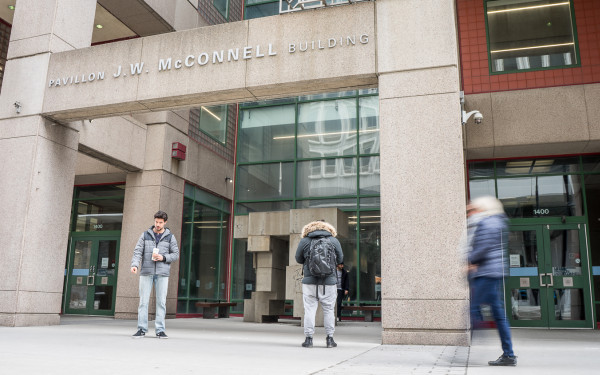Before the meals hit the wheels
How Santropol Roulant extends a helping hand to those who struggle to fill their plate
Located in the middle of the Plateau, Santropol Roulant adapted the concept of Meals-on-Wheels (or Popote Roulante) to deliver 115 to 130 meals, five days a week, to low-income individuals and those who suffer from social isolation.
In 1995, two workers from Café Santropol decided to create Santropol Roulant. The creation of the organization came from the desire to encourage employment and community involvement opportunities for Montreal youth.
The community food hub Santropol Roulant began as a branch of the nearby Café Santropol, however, after a few years, the organization became independent with the help of a growing number of volunteers and external donors.
Santropol Roulant has now grown to be a productive and creative place with its five collectives and numerous projects in schools or with other associations.
Susan Kazenel has been volunteering at Santropol Roulant since 1999. She currently volunteers in the kitchen making meals. She reflects on how the kitchen, since its origin, has quadrupled in size. “Sometimes I stop by the old place and wonder; ‘how did we do it,’” she says.
Clare Shuley, the fundraising and communications coordinator of the Santropol Roulant, explained that their mission works towards food security and social inclusion.
Before the meals hit the wheels, the kitchen adapts to every volunteer’s needs, as social inclusiveness is one of the association's concerns. For instance, one of the volunteers is visually impaired and the kitchen is adjusted to his needs when he comes to volunteer thrice a week.
The meals are also adaptable and made according to the beneficiaries' needs. They can, for example, be gluten-free or softer for those who have difficulty chewing. Meal recipients will call the organization as the volunteers cook around 9 a.m to 1 p.m., to choose the options they desire.
Once the meals are ready, a secondary team of volunteers enters the kitchen to pack the meals into boxes. Then, at about 3 p.m., the last round of volunteers will come to collect the meals in their Popote Roulante bags that they design themselves with the help of Protogear, a textile prototyping service. When the bags are filled, all delivery personnel leave Santropol Roulant to bike, walk or drive to the beneficiaries homes. The homemade meals are then distributed between 3 p.m. and 5 p.m. to recipients, where delivery personnel might stay for a quick conversation. Shuley explains that, for some beneficiaries, this meal delivery will be their only social interaction of the day. This moment can make a big difference to their daily lives, even if it is only a few minutes, she explains.
After Jitendra Desai lost his wife to cancer, he started developing complications with his heart; he was struggling with his day-to-day tasks. In 2012 Desai started utilizing the Meals-on-Wheels service thanks to a hospital social worker who recommended him to Santropol Roulant. The 84-year-old is also a vegetarian and has his meals catered to his needs.
“It is not only the food, it is also all the services they offer,” says Desai. “ The pizza delivery service was not operating but Santropol still delivered me my meal,” he says, referring to a very snowy day.
Santropol Roulant relies on a wide range of funding to sustain itself. The meals made daily cost around $17 each to make, however private foundations, individual donors as well as government grants, help alleviate their costs. Those who benefit from Meals-on-Wheels pay around $6 per meal they receive.
Another mission of Santropol Roulant is to fight for food security. Some beneficiaries with financial difficulties are able to benefit from a price reduction and pay for their meal at a subsidized price of $4.50. In some cases, the meals can even be free.
While all of these resources allow the Santropol Roulant to gain a little autonomy and visibility, it also relies heavily on volunteers to provide these services. Shuley highlights the fact that it is a great place for students who want to meet people and create intergenerational relations. It is a bilingual association, so French and English speakers are both welcome.
This article originally appeared in Volume 44, Issue 10, published February 13, 2024.







